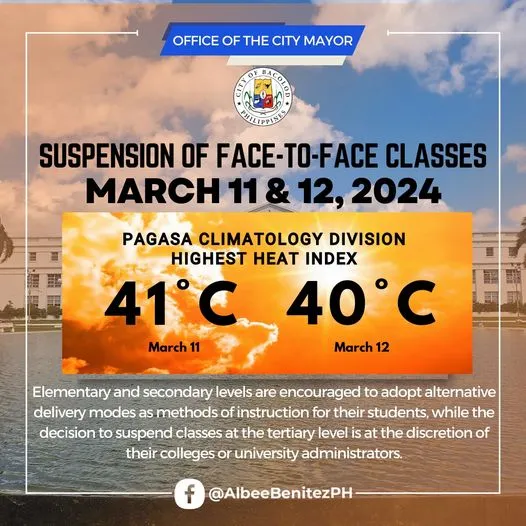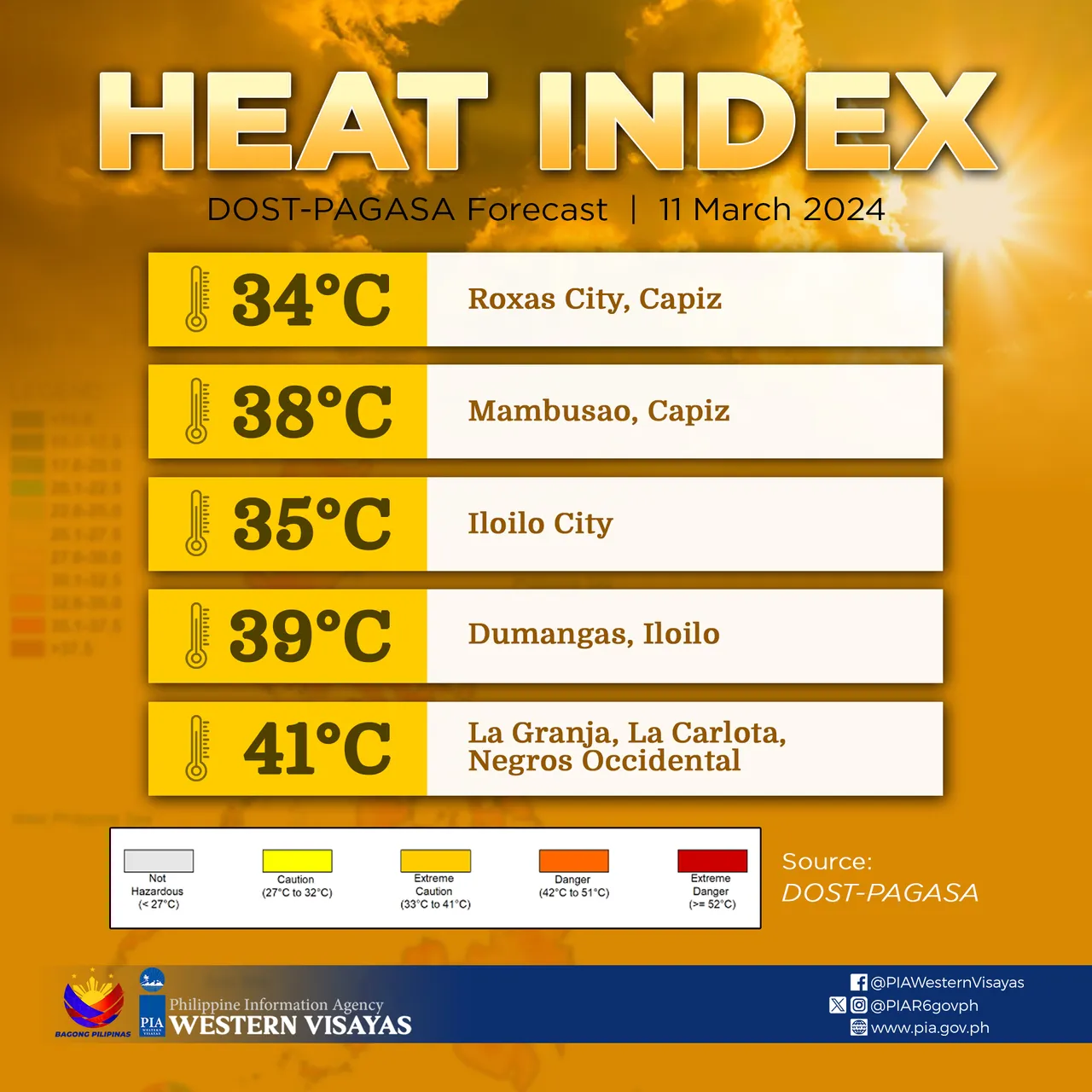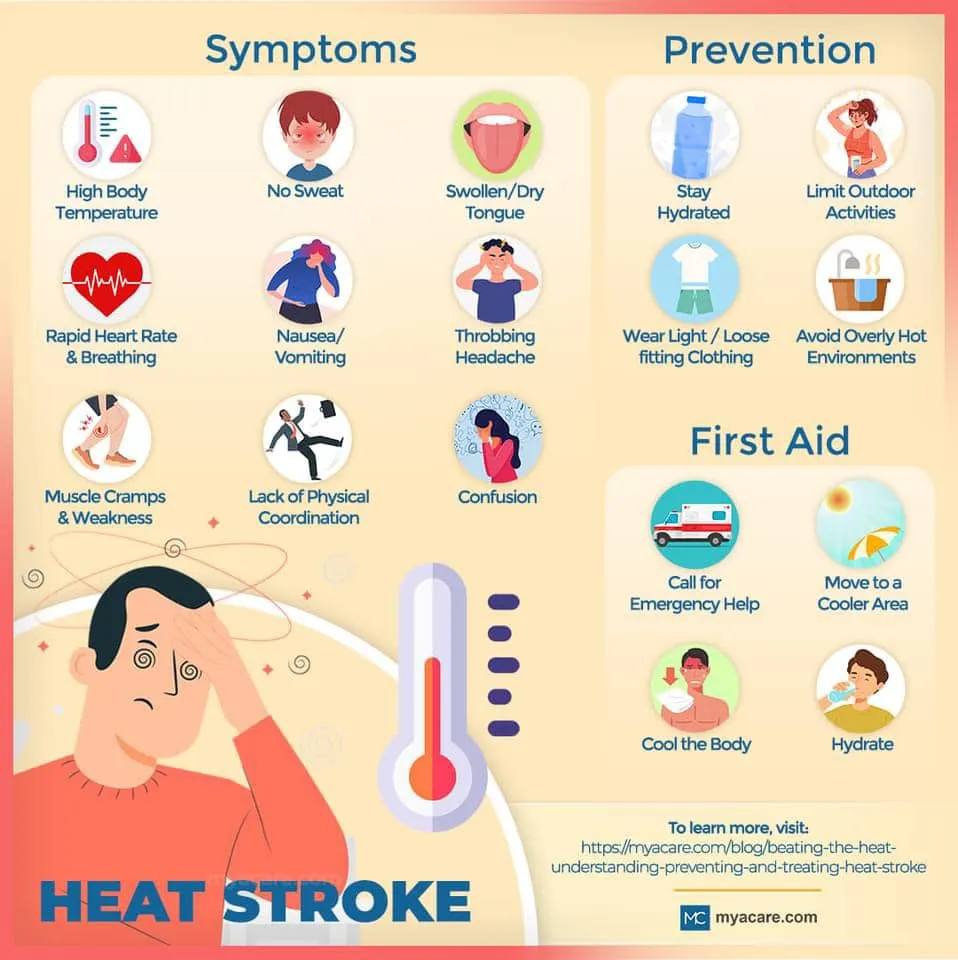As the summer season sets in, many schools have recently announced class suspensions due to the unusually high temperatures.

Basic Education Classes in Bacolod City are suspended today

Other neighboring cities and municipalities also suspend classes in the Basic Education Department

USLS IS Sportsfest Opening Cancelled
According to the Heat Index Forecast issued by DOST-PAGASA, today, March 11, five areas in the region are experiencing extreme heat. It is important for both students and adults to take necessary precautions to stay safe and healthy during this time.

The Heat Index, also known as the apparent temperature, is a measure of how hot it really feels when relative humidity is factored in with the actual air temperature. It takes into account the combined effects of temperature and humidity, giving us a better understanding of the potential risks associated with prolonged exposure to high temperatures.
One of the most important things to remember during extreme heat is to limit time spent outdoors, especially during the hottest parts of the day. This is particularly crucial for children, the elderly, and individuals with pre-existing medical conditions, as they are more susceptible to the adverse effects of heat.
Staying hydrated is also essential in combating the heat. Drinking plenty of water throughout the day helps to regulate body temperature and prevent dehydration. It is important to avoid excessive consumption of sugary or caffeinated beverages, as these can contribute to dehydration.
In addition to staying hydrated, it is advisable to wear light-colored and loose-fitting clothing. This helps to reflect sunlight and allows for better air circulation, keeping the body cooler. Wearing a hat or using an umbrella can also provide shade and protect the head and face from direct sunlight.
Another important aspect of heat safety is ensuring proper ventilation in indoor spaces. If air conditioning is not available, using fans or opening windows can help to circulate air and provide some relief from the heat. It is also advisable to avoid using ovens or other heat-generating appliances during the hottest parts of the day, as they can further increase indoor temperatures.
For individuals who must be outdoors, it is recommended to apply sunscreen with a high SPF and seek shade whenever possible. Sunscreen helps to protect the skin from harmful UV rays, which can cause sunburn and increase the risk of heat-related illnesses.
Parents and guardians should also educate their children about the importance of heat safety. Teaching them to recognize the signs of heat exhaustion and heatstroke, such as dizziness, nausea, rapid heartbeat, and confusion, can help them take appropriate action and seek medical attention if needed.
It is crucial for schools and educational institutions to prioritize the well-being of their students and staff during periods of extreme heat. By implementing measures such as class suspensions and providing access to cool and shaded areas, they can help mitigate the risks associated with high temperatures.
Ultimately, everyone has a role to play in ensuring their own safety and the safety of others during times of extreme heat. By following these simple precautions and staying informed about the weather conditions, we can navigate through the summer season with minimal risks and enjoy the warmth without compromising our health.
Heatstroke

Keep safe and hydrated everyone!
